- About us
- Support the Gallery
- Venue hire
- Publications
- Research library
- Organisation chart
- Employment
- Contact us
- Make a booking
- Onsite programs
- Online programs
- School visit information
- Learning resources
- Little Darlings
- Professional learning
“This is my grandmother from my father, Nambin (black-head snake). This is my aunty (father’s sister) Nyawana (white-chested kangaroo). This is my father’s niece, Nagarra (yellow flowers of the snappy gum tree). This is my great-grandmother (father’s grandmother), Naminjili (curlew bird).”
Shirley has painted the four skin names of her paternal grandmother’s side. These skin totems are different to her mother’s side. For Gija people, there are a total of 16 different skins for men and women combined: eight skins for women that come from paternal and maternal sides, and eight skins for men. Each skin here refers to an animal or plant, and helps Gija people understand their place in society and their relationships between each other, particularly for marriage, and marrying one’s ‘straight-skin.’
Looking at the correct straight skin relationships, Nyawurru (the emu) can marry Nambin, the black-headed snake’s son. Nangari (the crow) can marry Naminjili, the curlew bird’s son, or Nambin’s brother. Nangala (the brolga) can marry Nagarra, the snappy gum flower’s son. Nyajari (the turkey) can marry Nagarra’s brother.

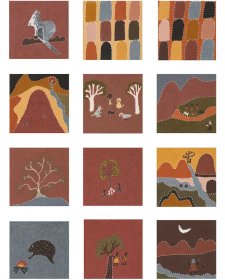
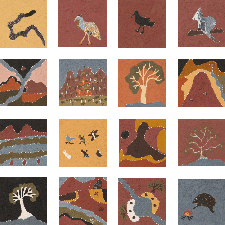
27 May 2020
Emily Casey takes in Shirley Purdie’s remarkable self-portrait, Ngalim-Ngalimbooroo Ngagenybe.
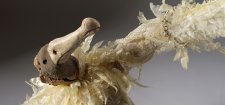
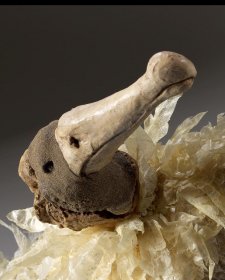
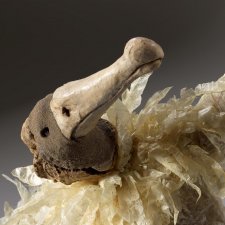
This exhibition features new works from ten women artists reinterpreting and reimagining elements of Australian history, enriching the contemporary narrative around Australia’s history and biography, reflecting the tradition of storytelling in our country.



Visit us, learn with us, support us or work with us! Here’s a range of information about planning your visit, our history and more!